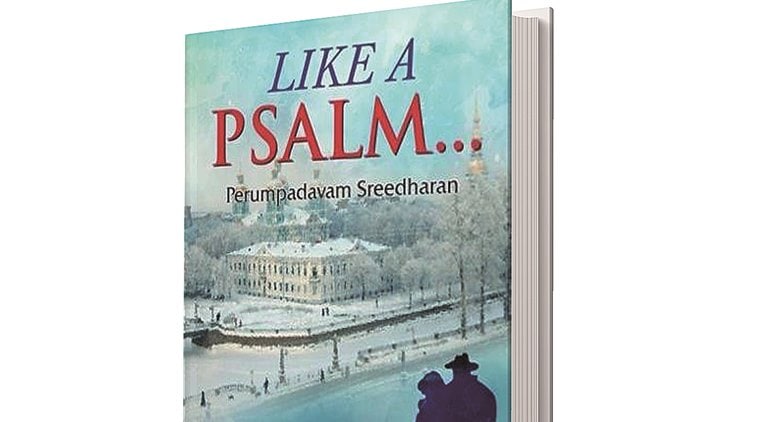Steady Goes the Saint
A novel on Dostoevsky’s relationship with his stenographer, Anna Grigoryevna.

It is not easy to treat with even-handedness a character as towering as Dostoevsky’s — especially when one considers Kerala’s long-standing love affair with Soviet literature.
When Malayali writer Perumbadavam Sreedharan wrote about one of his idols, Russian literary giant Fyodor Dostoevsky, the title he chose was Oru Sankeertanam Pole. And, as the name suggests, his book, Like A Psalm, delves into themes of suffering, spirituality and hope, all the while trying earnestly to understand the man behind the legend.
The novel starts at a time when Dostoevsky has mere days before he has to turn over the manuscript of what would become The Gambler, one of his well-known works. He struggles to put pen to paper, haunted by the fact that his publisher, Stellovsky, will take severe legal action against him if he crosses his deadline. He is persuaded by a friend to hire a stenographer, Anna Grigoryevna Snitkina, to speed up the process. The book is broadly structured around the ensuing bond between Dostoevsky and Anna, adding depth to what is already known about their relationship.
It is not easy to treat with even-handedness a character as towering as Dostoevsky’s — especially when one considers Kerala’s long-standing love affair with Soviet literature. Sreedharan himself has referred to Dostoevsky as a “saint”, looking at the Russian writer’s agonising experiences as ones that purified him. However, despite the ready supply of information, when it comes to Dostoevsky’s life, Sreedharan seamlessly makes the transition from biography to historical fiction. He adds colour to the character with a confidence that could perhaps only come from an avid reader of Dostoevsky’s works. However, the book largely avoids the pitfall of tilting the scales too heavily one way or the other. Doestoevsky’s gambling addiction, his epileptic fits, the tragedies that unfold in some of his relationships and the resulting internal conflicts are allowed to play out, with no overt revulsion or worship on the part of the author.
Perhaps the one area where Sreedharan’s own admiration of the writer manifests itself is in the writing of Anna’s character. The cycle of emotions she feels with respect to Dostoevsky — fascination, compassion, horror and, as time passes, a deep admiration — come across vividly as the novel progresses.
Psalm doesn’t shy away from examining Dostoevsky’s internal demons or the obsessions that took root in him. However, much of it stays at a level easily extrapolatable for a reader of the Russian author’s writing. The details are meaty enough to keep the narrative taut and the character progressing throughout the book. However, the end result is less of a deep examination and more of a colouring between the lines. What lay at the heart of Dostoevsky’s spirituality, that he stayed true to it despite battling his inner demons constantly? Given his extramarital affairs, how did he navigate between love and lust, the spiritual component and the primal impulse? Where does morality fall in this context? When it comes to such questions, potential answers only reach so far.
The English translation of the Malayalam original, by AJ Thomas, reads with commendable efficiency. But, there is a sense that the translation was done with an aim to stay as true as possible, not just to the content, but also to the structure of the original language. This results in sentences which, while not technically incorrect in English, don’t have the same fluency they might have carried in the original. This is not a serious concern while reading the book, but there is nevertheless a sense that the pace is lost every time a sentence stands out due to its odd construction.
There is a moment in Psalm when Dostoevsky is asked why he chooses to only write about misery and darkness. Perhaps this novel too contemplates that question, as it chooses to focus on a period of light. Despite the dire circumstances he was under, this was also the period when Dostoevsky met Anna, who was, in many ways, a psalm in his eyes. For one who engaged with spirituality as much as he did, such a psalm seems like fitting tribute.
For all the latest Lifestyle News, download Indian Express App






















No hay comentarios:
Publicar un comentario